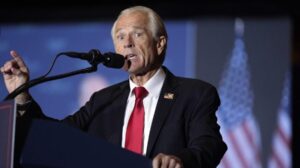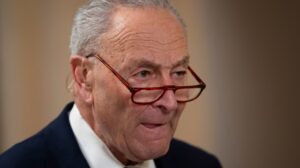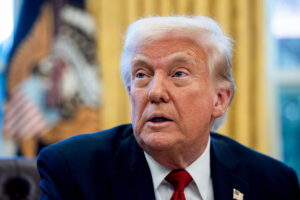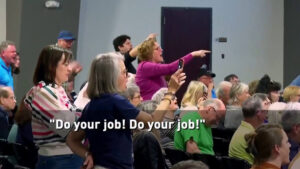The Dictatorship
Trump’s executive order on elections is a blatant power grab

By design, presidents have no power over the conduct of federal elections. President Donald Trump’s recent executive orderon election administration aims to flip that, trying to take power from both an independent bipartisan federal agency and from the states, in an affront to principles of federalism. This dangerous power grab signals further democratic backsliding.
Most other democracies such as Canada or Australia have a national body that administers national elections. The United States, on the other hand, leaves the administration of federal elections to states and counties, with additional rules imposed by Congress under its constitutional powerto regulate congressional elections.
It’s dangerous to put such power in the hands of the president.
After the disputed 2000 election, Congress used those powers to pass the Help America Vote Act which, among other things, established the United States Election Assistance Commission: a federal agency that approves voting technologies eligible for federal subsidies and advises states and counties on best practices. The EAC is described as “independent” in the congressional statute; it has four members, no more than two from any single political party, and it takes three commissioners to approve anything. The design is meant to be bipartisan and independent of political branches, insulating the agency from some politics.
Trump’s executive order tries to turn that around. It purports to direct the EAC to do certain things such as require documentary proof of citizenship on a form that the federal government provides to allow people to register to vote anywhere in the United States for federal elections.
Requiring documentary proof of citizenship to be allowed to register to vote is currently under debate both in Congress and in the states (Arizona has such rules, though they are tied up in litigation). Whether a documentary requirement is a good idea — and I think it is a bad idea, because it could disenfranchise millions of eligible voters and prevent only a tiny amount of fraud — the issue is up to the states and Congress, not to the president.
It’s dangerous to put such power in the hands of the president, who could attempt to manipulate election rules to favor his party and his self-interest. And it seems especially dangerous to take power away from the states when there are many threats to our democracy.
Republicans seemed to understand this point in the past. When Joe Biden was president, he issued his own executive orderon voting. The order was a mild one, asking federal agencies to promote voter access and voter registration. Yet Republicans were outraged. Rep. Bryan Steil of Wisconsin, the chair of the House Administration Committee, issued a press release calling the order “another attempt by the Biden Administration to tilt the scales ahead of 2024.” Then-West Virginia Secretary of State Mac Warner dismissed the order as “federal overreach.”
If that order was an overreach, what Trump is trying to do now risks dislocating his proverbial arm from its socket. Not only does the executive order try to direct the independent EAC to take certain action, it also directs the attorney general to sue states that accept and count ballots that are mailed before Election Day but arrive after that day. And it purports to give the Department of Homeland Security and the Department of Government Efficiency the power to subpoena voter registration records from states in a silly hunt for elusive voter fraud.
In the first Trump administration, an advisory commission on “election integrity” chaired by Vice President Mike Pence tried to go after similar voting records. Pence and the commission got pushback from both Democrats and Republicans. One GOP official who refused to hand over such records was Mississippi Secretary of State Delbert Hosemann. “As all of you may remember, I fought in federal court to protect Mississippi voters’ rights for their privacy and won,” he said in 2017. “In the event I were to receive correspondence from the commission requesting (what the other state received) … My reply would be: They can go jump in the Gulf of Mexico and Mississippi is a great state to launch from.”
I hope Republican officials have a similar response this time around — minus the reference to the “Gulf of Mexico” of course.
Richard L. Hasen is professor at UCLA School of Law, where he directs its Safeguarding Democracy Project.
The Dictatorship
With his choice for drug czar, Trump adds to his team of Fox-affiliated amateurs
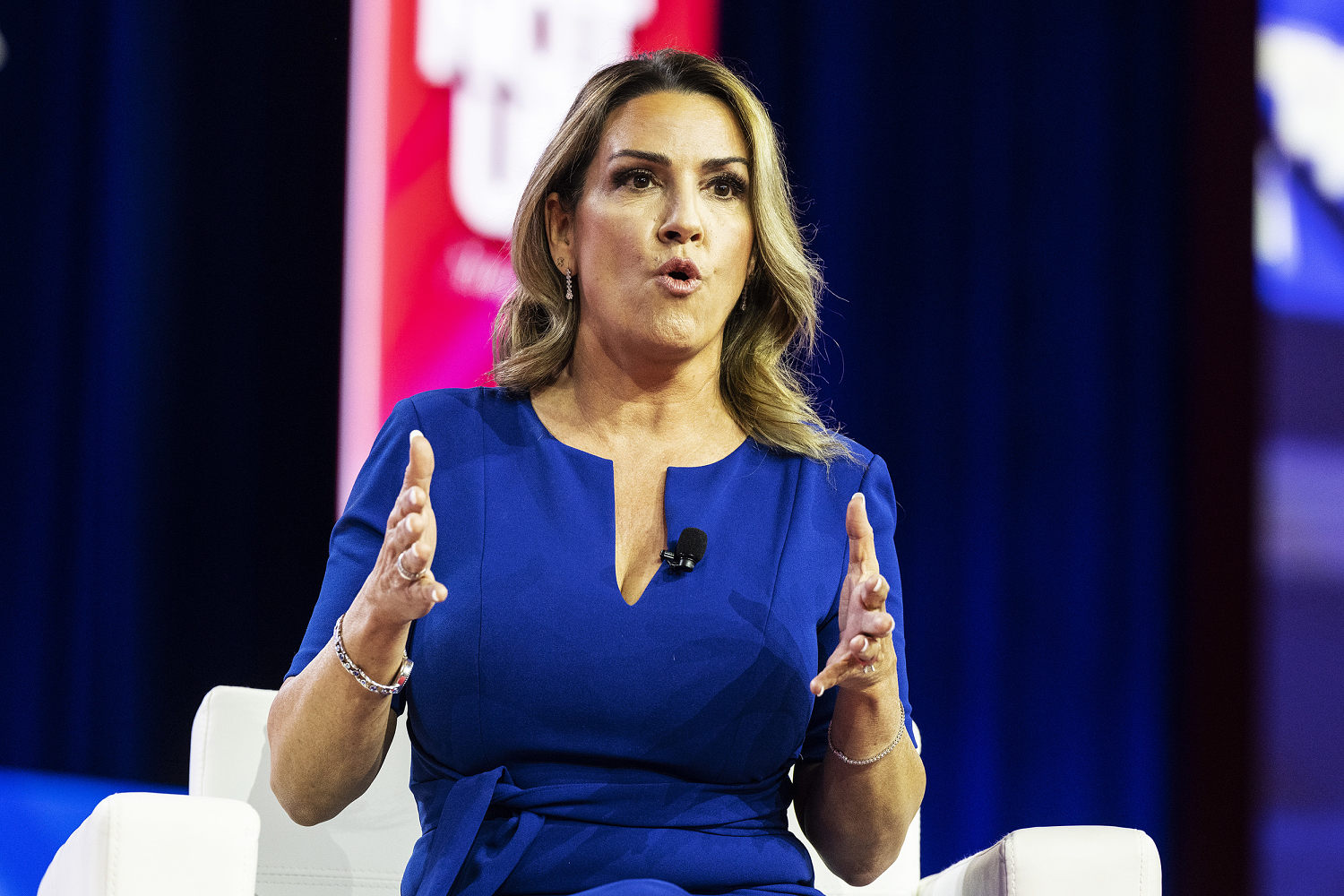
Nearly eight years ago, Donald Trump nominated Republican Rep. Tom Marino of Pennsylvania to lead the Office of National Drug Control Policy — a position best known to the public as the nation’s “drug czar.” That did not turn out well.
Following explosive reporting from The Washington Post, which found that the GOP congressman championed legislation that hindered federal agents from going after the Big Pharma firms that flooded the country with addictive opioids, Marino’s nomination collapsed and he withdrew from consideration.
Eight years later, the president has a new drug czar in mind, who’s notable for different kinds of reasons. The Washington Post reported:
President Donald Trump said on Friday that he intends to nominate Sara A. Carter, a Fox News contributor, to serve as director of the White House Office of National Drug Control Policy. “From Afghanistan to our Border, Sarah’s relentless pursuit of Justice, especially in tackling the Fentanyl and Opioid Crisis, has exposed terrorists, drug lords, and sex traffickers,” Trump wrote on his social media platform, Truth Social, misspelling her first name.
One of the reasons the Carter nomination stood out is the growing list of Fox News personalities who’ve landed powerful positions on Team Trump. In January, The New York Times published a tally and found 19 “former Fox News hosts, commentators, on-air medical experts, producers and other personnel” who’d landed jobs in the Republican administration. Soon after, Media Matters published a revised totalputting the new number at 20. (The list did not include Attorney General Pam Bondi, who briefly moonlit as a guest host of a Fox News program while she was serving as Florida’s chief law enforcement official.)
As March got underway, the president also appointed Fox News personalities Laura Ingraham and Maria Bartiromo to the Kennedy Center board, and as March neared its end, Trump added yet another Fox News contributor to his White House operation, tapping Carter to serve as the drug czar.
But complicating matters is the nominee’s resume. As a Stat News report explained, “Carter’s selection comes as a surprise: Her background is not in drug policy, public health, or law enforcement, and she has never served in government.”
Or put another way, Carter will be an amateur, joining Trump’s team of amateurs.
It is not exactly a secret that the incumbent president sees governing expertise and policymaking experience as qualities to be avoided. Indeed, during the Republican’s first term, those with expertise and experience tended to be the people who discouraged the president — the first chief executive in American history to reach the Oval Office without any experience in public office at any level — from taking steps he was eager to take.
As a result, Trump appears to have gone out of his way to lean into his preference for amateurs in a second term, choosing inexperienced and unqualified loyalists for much of the White House Cabinet.
Those who celebrate rookies in positions of influence have reason to celebrate. Those who value qualifications have reason to worry.
Steve Benen is a producer for “The Rachel Maddow Show,” the editor of MaddowBlog and an BLN political contributor. He’s also the bestselling author of “Ministry of Truth: Democracy, Reality, and the Republicans’ War on the Recent Past.”
The Dictatorship
Trump says he ‘couldn’t care less’ if some automakers raise prices due to tariffs

The Wall Street Journal reported that Donald Trump recently spoke to some of the top U.S. automakers, and as part of the private chat, he issued a warning: The president told them not to raise prices in response to the White House’s tariffs policy.
The report, which has not been independently verified by BLN or NBC News, added that the Republican told the executives “that the White House would look unfavorably on such a move, leaving some of them rattled and worried they would face punishment if they increased prices, people with knowledge of the call said.”
Of course, this was more than just the latest example of heavy-handed White House tactics toward ostensible private-sector allies. There was also an unstated subtext to the president’s message to the domestic automakers: Trump seemed to realize that his policy on tariffs would push the manufacturers to raise prices. He apparently hoped to convince them otherwise.
Two days after the Journal’s report reached the public, the president spoke to NBC News about this and other issues, and he denied the accuracy of the account — or at least tried to.
The president said he “couldn’t care less” if automakers raised prices after he announced he would impose 25% tariffs on all foreign-made automobiles. When pressed if he told CEOs not to raise prices, as reported in the Wall Street Journal, Trump added, “No, I never said that. I couldn’t care less if they raise prices, because people are going to start buying American-made cars.”
Trump continued, “I couldn’t care less. I hope they raise their prices, because if they do, people are gonna buy American-made cars.”
In context, the Republican was apparently trying to argue that he “hopes” to see foreign auto manufacturers raise prices on their vehicles so that consumers would shift their focus to domestic auto manufacturers.
But it’s not quite that simple. Whether Trump’s tariffs would raise prices on domestic manufacturers — many American cars and trucks are made with parts that are imported from other countries — is a detail the White House does not appear to have grappled with.
What’s more, U.S. manufacturers who sell vehicles abroad will have to contend with a series of reciprocal tariffs imposed by other countries.
With this in mind, if the president assumes that U.S. companies are on board with his approach, there’s evidence to the contrary. In fact, it was just last month when Ford Motor CEO Jim Farley spoke at a conference and said the Trump administration’s trade policies were generating “a lot of chaos“ for the industry.
As part of the same remarks, the Ford executive also warned that some of the White House’s plans for trade tariffs would be “devastating” to auto manufacturers and “blow a hole in the U.S. industry that we’ve never seen.”
It might seem like ancient history, but it was just last year when Trump told voters“When I win, I will immediately bring prices down starting on day one.” This is not a cherry-picked quote that he accidentally blurted out once and then quickly forgot. On the contrary, the then-candidate repeated the line over and over again as Election Day approached, assuring Americans that he’d help lower prices immediately after returning to the White House.
It’s hard not to wonder how voters who believed his promises feel after hearing Trump say he “couldn’t care less” if some automakers raise prices.
Steve Benen is a producer for “The Rachel Maddow Show,” the editor of MaddowBlog and an BLN political contributor. He’s also the bestselling author of “Ministry of Truth: Democracy, Reality, and the Republicans’ War on the Recent Past.”
The Dictatorship
Despite the Constitution, Trump says he’s ‘not joking’ about eyeing a third term
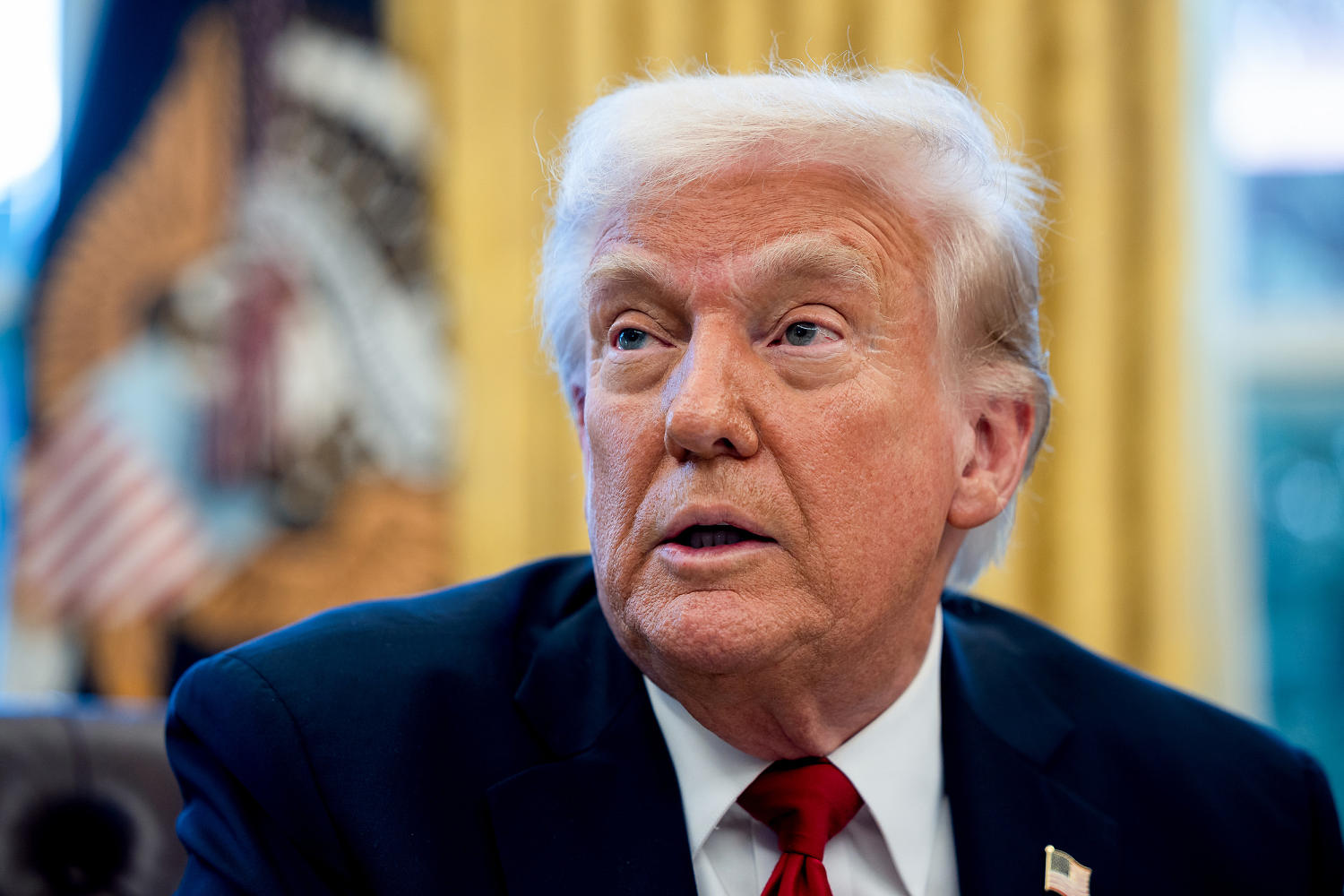
Over the course of the last decade or so, Donald Trump has demonstrated an affinity for laying rhetorical groundwork for some of his most radical tactics. Ahead of the 2020 election, for example, the president prepared to reject a possible defeat, so he spent months telling the public that the electoral process was illegitimate. Ahead of his many criminal indictments, he similarly invested time and energy into delegitimizing the legal process.
This strategy came to mind anew upon hearing the Republican talk about possibly pursuing a third term in the White House. NBC News reported:
President Donald Trump did not rule out the possibility of seeking a third term in the White House, which is prohibited by the Constitution under the 22nd Amendment, saying in an exclusive interview with NBC News that there were methods for doing so and clarifying that he was “not joking.” … “A lot of people want me to do it,” Trump said in a Sunday-morning phone call with NBC News, referring to his allies.
To be sure, the president’s comments on the subject came with some caveats — or at least comments that seemed like caveats. Trump said, for example, that it’s “far too early” to make any decisions about his electoral future. He similarly added that it’s “very early” in his second term.
But those comments didn’t negate the apparent fact that the incumbent, who is prohibited under the U.S. Constitution from seeking a third term — the 22nd Amendment says, “No person shall be elected to the office of the President more than twice” — is open to the possibility of at least trying to pursue a third term.
In fact, in his interview with NBC News, Trump was hardly subtle. “I’m not joking,” he said, adding that there are “methods” in which he could pursue such a goal.
NBC News asked about a possible scenario in which Vice President JD Vance would run for office and then pass the role to Trump. Trump responded that “that’s one” method. “But there are others, too,” Trump added. Asked to share another method, Trump simply responded “no.”
Hours after the NBC News report reached the public, the president chatted with reporters aboard Air Force One and dodged a series of questions on the topic, though he claimed that “people” have asked him to run for a third term — which he said would be a fourth term “in a way” because his 2020 race was “totally rigged.” (It was not rigged; he lost fair and square, and he’s been lying uncontrollably about this for more than four years.)
If this broader rhetorical push sounds at all familiar, it’s not your imagination. Trump talked about pursuing a third term earlier this month. And last month. And the month before that. And the month before that. In fact, as regular readers might recall, Trump made a series of public comments about a third term during his first term.
What’s more, a variety of White House allies, most notably media personality Steve Bannon, appear to be quite enthusiastic about what they perceive as a possibility — which, again, is not a possibility.
I won’t pretend to know where this is headed or the degree to which the president is prepared to defy constitutional law. But Scott Cummings, a professor of legal ethics at the UCLA School of Law, made a comment on “The Rachel Maddow Show” on Friday that stood out for me.
Commenting on autocracies around the world that have consolidated power, Cummings noted that in none of these countries “do leaders do all the things that Trump is doing, take aim at all of these independent institutions, and then just walk away.” Rather, the professor added, authoritarians take these steps because they intend “to stay in power permanently.”
Steve Benen is a producer for “The Rachel Maddow Show,” the editor of MaddowBlog and an BLN political contributor. He’s also the bestselling author of “Ministry of Truth: Democracy, Reality, and the Republicans’ War on the Recent Past.”
-

 The Josh Fourrier Show5 months ago
The Josh Fourrier Show5 months agoDOOMSDAY: Trump won, now what?
-
Uncategorized5 months ago
Bob Good to step down as Freedom Caucus chair this week
-
Uncategorized5 months ago
Johnson plans to bring House GOP short-term spending measure to House floor Wednesday
-

 Politics5 months ago
Politics5 months agoWhat 7 political experts will be watching at Tuesday’s debate
-
Economy5 months ago
Fed moves to protect weakening job market with bold rate cut
-
Economy5 months ago
It’s still the economy: What TV ads tell us about each campaign’s closing message
-

 Politics5 months ago
Politics5 months agoHow Republicans could foil Harris’ Supreme Court plans if she’s elected
-

 Politics5 months ago
Politics5 months agoRFK Jr.’s bid to take himself off swing state ballots may scramble mail-in voting




